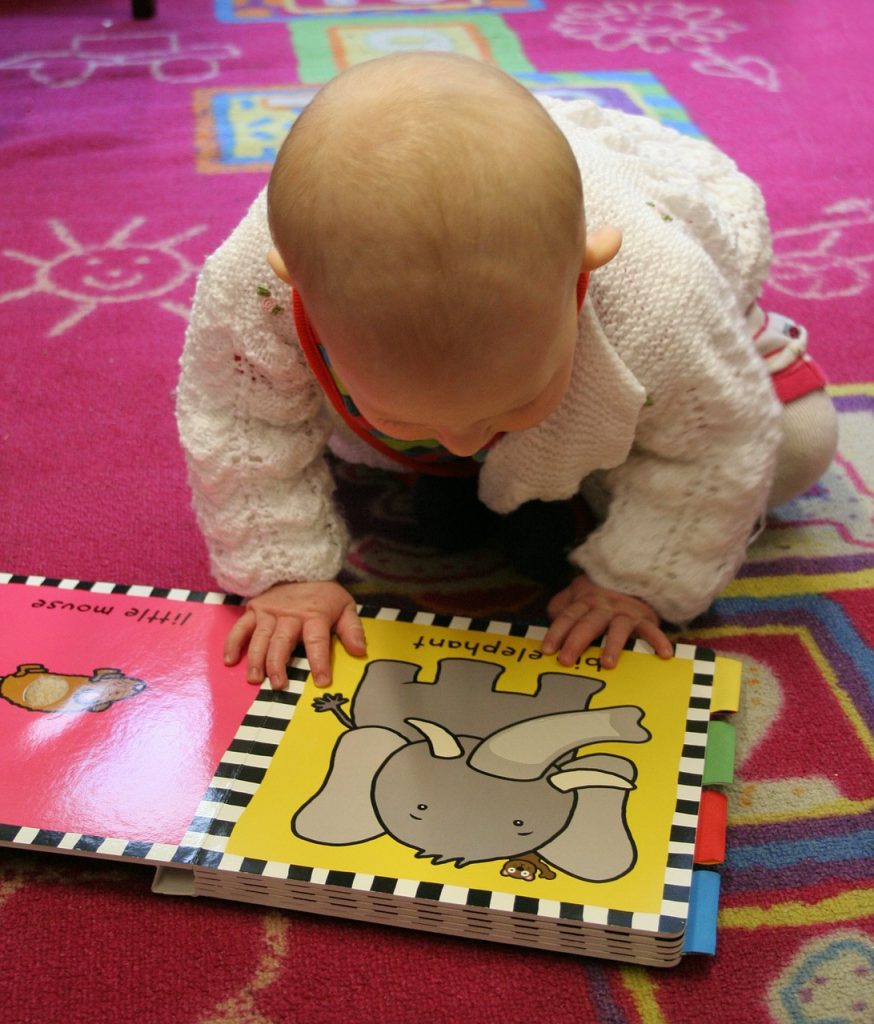Activities for National Storytelling Week

Stories have so much to offer: they develop listening and communication skills, improve concentration and memory, bring experiences alive, create a sense of wonder and help sequence events.
They can also provide information, widen vocabulary and make important links between the spoken and written word, as well as stimulating an interest and enjoyment of books. We have an important part to play in the early years – sparking this interest in stories and books at an early age.
We will be joining in National Storytelling Week from the 3rd to the 7th February 2020. Our activities during the week will include:
- Inviting the children to bring in their favourite stories throughout the week to share with their carers and friends
- Taking groups of children to the local library
- Using story sacks and props to bring our favourite stories to life
- Making up our own stories with the children – using sequencing
- Undertaking activities based around our favourite stories and characters to promote learning and development in all areas of the Early Years Foundation Stage
- Encouraging the children to dress up throughout the week as their favourite book characters
8-20 months
A child should have an interest in holding and looking at books by this age. It is important they can hold books so they can see what is going on whilst listening to you read the stories. They can learn what books are and play with the pages.
16-26 months
By this age most children can identify their favourite books and stories they want to see and hear. They can recognise and mimic actions from their favourite songs and stories. Encourage this by always letting them join in with storytelling and songs, let them point to things they can recognise or make the sounds of things in the book.
22-36 months
By the age of three, children should be able to fill in missing gaps in stories and songs that they have heard repeatedly. They have their favourite books and songs and they can help to tell the tale. By pausing during a story that they know well, you give them the opportunity to fill in the gaps and add more words to their vocabulary.
30-50 months
By four, children should be able to recognise the story being read to them, they can help with telling the story and can anticipate the end of the story. They should be able to join in with rhymes and be able to recognise words that start with the same sound such as ‘big boat’. They should also be able to recognise words that mean something to them, such as their own name or mummy, favourite shops and places.
They can sit and listen for longer and can hold the book correctly and turn pages by themselves.
40-60 months
By the age of five, a child is expected to be able to remember and speak words that rhyme like cat and hat and sat. Their imaginations and vocabulary mean they are able to tell their own made up stories and can make up their own songs. Story time doesn’t mean you just read to them – it’s far more interactive.
They can understand and read simple sentences and they use their phonics knowledge to sound out words to read them accurately. They can also demonstrate a real understanding of what has been read or said to them.


